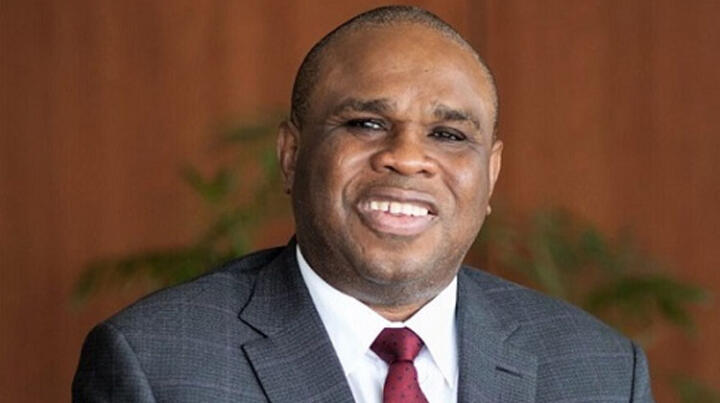In a recent statement, Dr. Benedict Oramah, the President of the African Export-Import Bank (Afreximbank), emphasized the importance of a quality healthcare system in stemming the phenomenon of “Japa.” The term “Japa” is commonly used in Nigeria to describe the trend of young individuals seeking opportunities abroad, particularly in developed countries.
Dr. Oramah’s assertion underscores the link between healthcare infrastructure, the retention of skilled professionals, and the overall well-being of a nation. The Infosride delves into the details of Dr. Oramah’s remarks, the significance of a robust healthcare system, and the potential implications for stemming the “Japa” trend.
Key Points from Dr. Benedict Oramah’s Statement:
1. Addressing Root Causes:
– Dr. Oramah’s statement suggests a focus on addressing the root causes that drive individuals, particularly young professionals, to seek opportunities abroad. Instead of solely reacting to the symptoms of migration, he emphasizes the importance of tackling underlying issues that contribute to the “Japa” phenomenon.

2. **Investment in Healthcare:**
– The assertion underscores the role of healthcare as a fundamental component in the overall development of a nation. Dr. Oramah implies that substantial investments in healthcare infrastructure can have a positive impact not only on the health of the population but also on the retention of skilled professionals within the country.
3. **Human Capital Development:**
– The linkage between a quality healthcare system and human capital development is implicit in Dr. Oramah’s statement. A well-functioning healthcare system contributes to the well-being and productivity of the workforce, fostering human capital development that is crucial for economic growth.
4. **Nurturing Talent at Home:**
– By addressing healthcare infrastructure deficiencies, the aim is likely to create an environment where individuals, especially those with specialized skills, feel valued and supported in their home country. This nurturing of talent can play a role in dissuading professionals from seeking opportunities abroad.
**Significance of a Robust Healthcare System:**
1. **Retaining Skilled Professionals:**
– A quality healthcare system is a critical factor in retaining skilled professionals. Access to good healthcare, both for individuals and their families, can be a determining factor in whether professionals choose to stay in their home country or explore opportunities abroad.
2. **Enhancing Quality of Life:**
– A well-developed healthcare system contributes to an enhanced quality of life for the population. Adequate medical facilities, skilled healthcare professionals, and access to essential medicines contribute to the overall well-being of citizens, making the prospect of living and working in their home country more appealing.
3. **Attracting Foreign Investments:**
– A robust healthcare system is also attractive to foreign investors. Investors consider the health and productivity of the workforce when deciding to establish businesses or invest in a particular country. A healthy and skilled workforce can contribute to the overall economic attractiveness of a nation.
4. **Mitigating Brain Drain:**
– Brain drain, as exemplified by the “Japa” phenomenon, is often driven by the perception that opportunities for personal and professional growth are better abroad. Improving the healthcare system addresses one aspect of this perception, contributing to efforts aimed at mitigating brain drain.
**Potential Implications for Nigeria:**
1. **Strategic Healthcare Investments:**
– Dr. Oramah’s statement may prompt calls for strategic investments in Nigeria’s healthcare infrastructure. This could involve the construction and upgrading of medical facilities, recruitment and training of healthcare professionals, and the implementation of health policies that prioritize public well-being.
2. **Policy Reforms:**
– The assertion may lead to discussions and advocacy for policy reforms aimed at enhancing the overall healthcare system in Nigeria. Policy initiatives focused on improving access to quality healthcare, ensuring the availability of essential medicines, and addressing healthcare workforce challenges could gain prominence.
3. **Public-Private Partnerships:**
– Encouraging public-private partnerships in the healthcare sector may be a key consideration. Collaborations between government entities and private healthcare providers can lead to improved infrastructure, increased capacity, and more effective delivery of healthcare services.
4. **Human Capital Retention Strategies:**
– Driven by the recognition of healthcare as a key retention factor, Nigeria may develop and implement comprehensive human capital retention strategies. This could involve creating an environment conducive to professional growth, offering competitive salaries and benefits, and addressing other factors that contribute to the “Japa” trend.
**The Infosride’s Ongoing Coverage:**
As Dr. Benedict Oramah highlights the importance of a quality healthcare system in stemming “Japa,” The Infosride remains committed to providing ongoing coverage. Stay tuned for updates on healthcare-related initiatives, insights into policy developments, and comprehensive reporting on efforts to address the root causes of migration trends in Nigeria.
Support InfoStride News' Credible Journalism: Only credible journalism can guarantee a fair, accountable and transparent society, including democracy and government. It involves a lot of efforts and money. We need your support. Click here to Donate
